What Do Oprah, Arianna Huffington, and Glennon Doyle Have in Common? Her Name Is Jennifer Rudolph Walsh
This article is part of a series profiling the inspiring women of Together Live, a band of all-female storytellers who are traveling across the U.S. this fall, spreading love, laughter, and hope. In 10 cities, big and small, the intimate one-night-only events serve as a reminder that no matter what divides us, women are strongest when we come together. Learn more about Together Live here—and get excited to join the party.
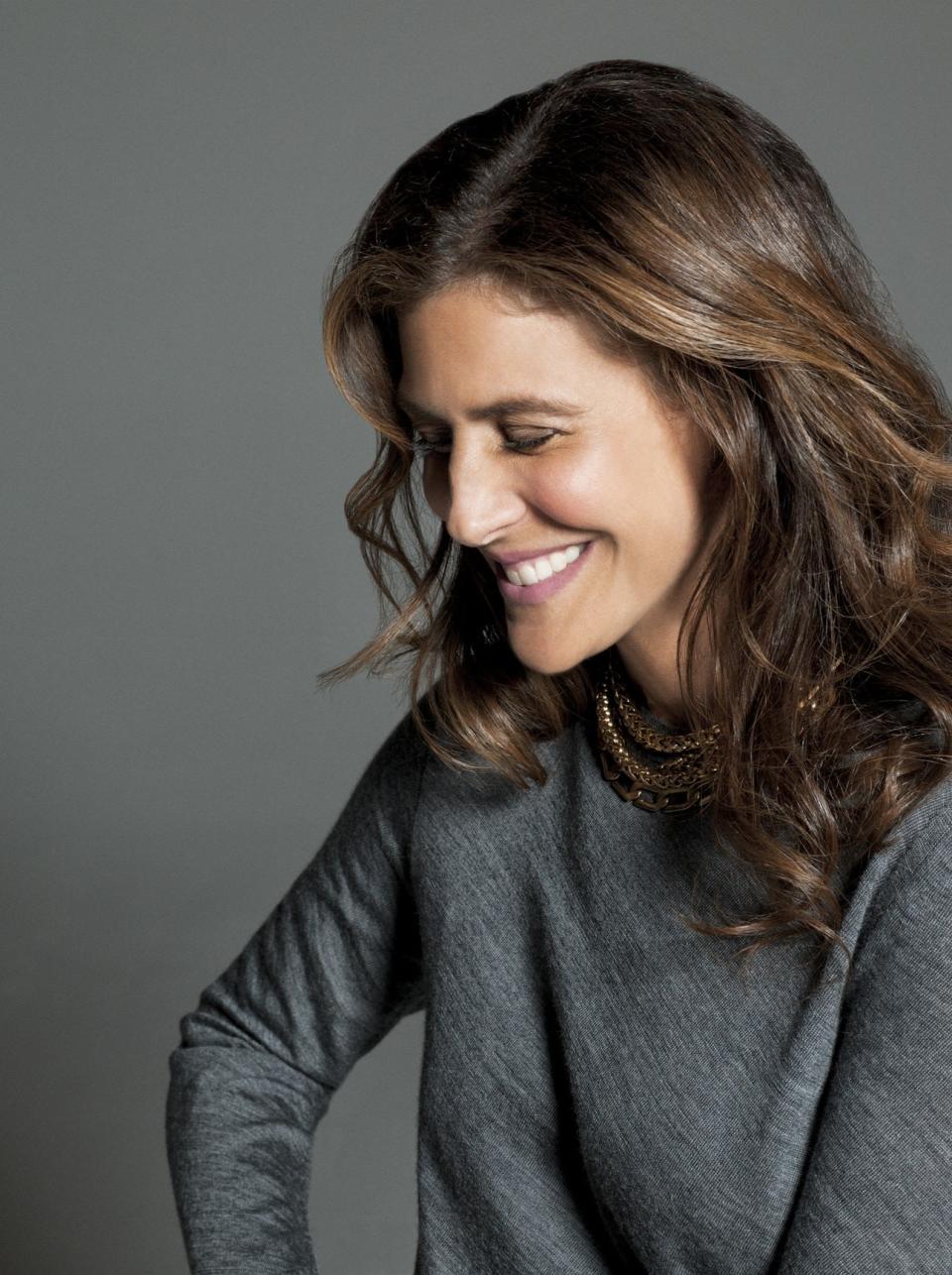
Even if you’ve been living under a rock in Siberia for the past 20 years, you know about these books: The Sisterhood of the Traveling Pants. The Glass Castle. The Secret Life of Bees. And if you were living under that same rock while wearing earmuffs and a blindfold, you know about these women: Oprah Winfrey. Arianna Huffington. Glennon Doyle.
All of the above have two things in common: extraordinary success and Jennifer Rudolph Walsh.
At 17, Walsh was “the kid in the back of the bus getting into trouble.” [Editor’s note: Same, girl.] “I was not that kid with her nose in a book,” she’s said. “I was kicked out of high school and told I ‘failed to distinguish myself.’ That’s a bitter pill to swallow when you’re 17 and you feel that you’ve already fucked up so badly nobody even wants to recommend you to a college.”
She did manage to get into college: Kenyon College in Gambier, Ohio, where she earned her bachelor’s degree in English; more than two decades later, the school would go on to award her an honorary doctorate, a nod to her prolific career.
Yes, the former teenage troublemaker would become the youngest person ever and the first woman to join the board of the century-old William Morris Agency. As a literary agent—and eventually the head of William Morris Entertainment’s worldwide books department—Walsh turned out the aforementioned best-sellers, and many more, by the likes of Sheryl Sandberg, Brené Brown, and Alice Munro. She would go on to launch William Morris’s tour division, which was the driving force behind Oprah’s The Life You Want tour and Ariana Huffington’s Thrive conference, among others.
Today, Walsh is on a tour of her own: Together Live, which she colaunched with Glennon Doyle in 2016. “It’s all about that moment you realize we are all the same,” she recently told Glamour. “While one person onstage might be trans and one person might be wearing a hijab and another person might be disabled, once you start hearing people’s stories of desire and heartbreak and passion and purpose, you realize we’re all exactly the same—and it’s the most powerful feeling in the world. We’re designed for that.”
Here she shares more things she’s learned—about work, how to let go of perfectionism, and the one thing all powerful people have in common.
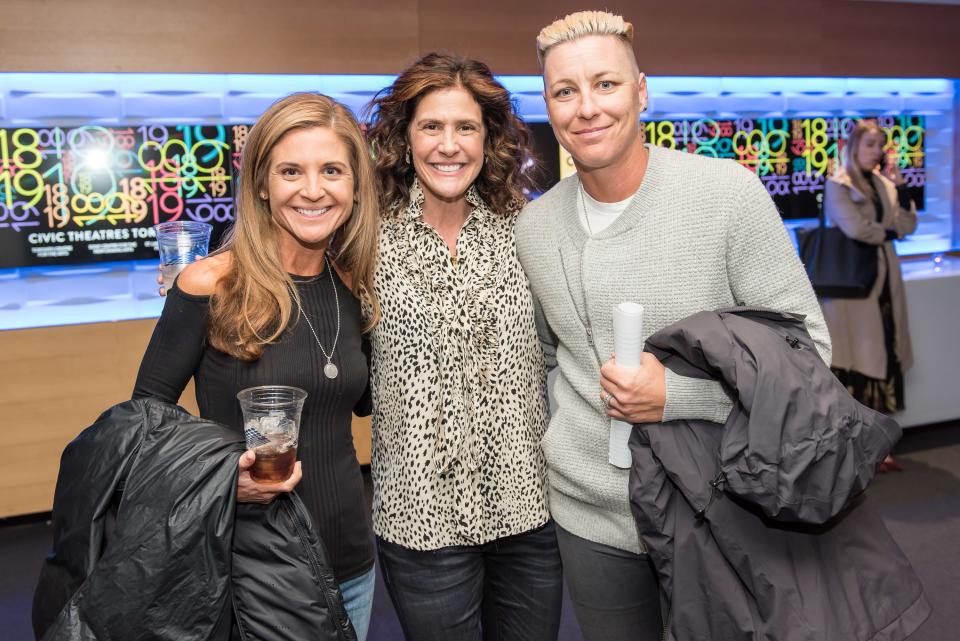
Hello Sunshine x Together Live - Toronto
It’s never too late to find your passion.
I didn’t always think books were for me. In my early years, I only read books that were written by dead white guys, and I didn’t find myself in any of their words or any of their stories. So I just wasn’t a reader.
It wasn’t until I got to college and discovered contemporary voices in literature—Toni Morrison, Alice Walker, Kim Chernin—that I came alive. I realized people are writing about the things that are happening in my life and heart. Even though the details were often different, the essence—the wanting to be seen, wanting to be loved, wanting to be connected—I found all of that in those contemporary women’s voices. That’s where my transformation and my dedication came from.
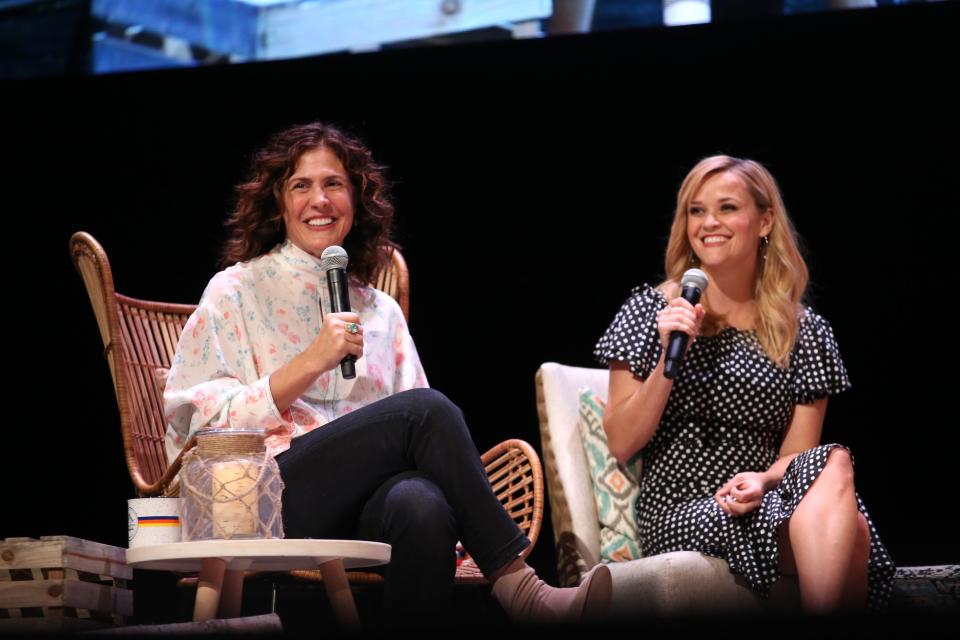
Hello Sunshine x Together Live - Chicago
Be impeccable in every step you take. (And two other rules for professional success.)
I have three rules I follow for myself. They’ve been vital to me, which is to say, I’m not telling other people how to live their lives. I’m only an expert in my own—and even still, expert would be a very big word. But I like to share what’s worked for me in the hope that somebody might find themselves in my words.
For me, rule number one is: You’re responsible for being impeccable for every step. You have to do 100% of every task that’s given to you. I don’t believe in perfectionism, but I do believe in being impeccable. That means no shortcuts.
Number two: Whenever possible, make somebody else look good. To use a sports metaphor, if you’re collaborating and there’s an opportunity to give somebody else the ball when it’s time to score, that’s a wonderful thing to do. It builds a lot of confidence and trust in the team. And when you do it as a practice, you learn that reflected glory is actually even more glorious.
And the third: Never worry about who gets credit—never even think about it. Ideas are free and what matters most is the execution. And if you’re impeccable in your steps and making other people look good, you don’t have to worry about where the credit falls.
If you can let go of perfectionism, you can also say goodbye to impostor syndrome.
Impostor syndrome comes hand-in-hand with perfectionism. I know I can’t be perfect, and I got from a very early age that I had to be as essentially “Jennifer” as I could possibly be: loud voice, hyperbolic descriptions.
I’ve always said exactly what I felt. “I have no idea how we’re going to do this, but here’s my idea. What do you think?” Or, “Wow, I just fucked that up royally. What do you guys think we should do here or there?” That authentic, process-oriented honesty kept me from ever feeling like an impostor. I wasn’t faking anything, so I didn’t feel fake.
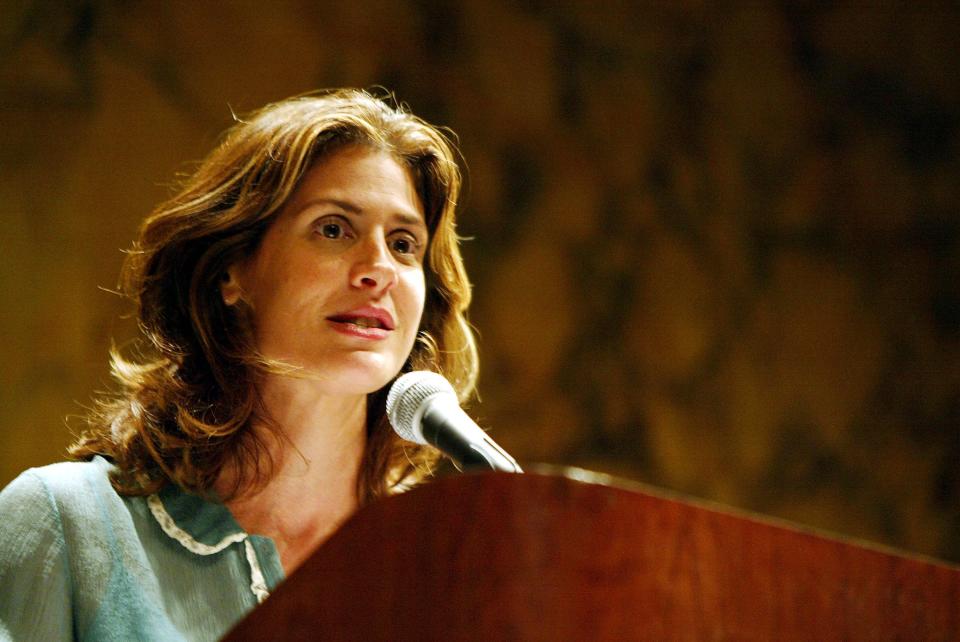
Winner of the Young Lions Fiction Award In New York
You can turn stress into service.
I used to have horrible, horrible anxiety about public speaking. And then Arianna Huffington pulled me onstage at one of our conferences because she wanted me to share a story. I could have vomited. I could have literally vomited.
I had told Arianna, some time ago, about somebody coming to my house and giving me a pot roast after my husband’s cancer surgery. The story was about how I never understood how to receive love; I only knew how to give love. She knew that story—that sentiment—would resonate, and she dragged me up there. As soon as I started telling the story and I looked into the audience, I could see people nodding their heads. People followed me into the bathroom afterward to talk about their stories of learning to receive love. And I thought, I get it now.
I’ve never had anxiety around public speaking again. The shift to service, it’s that powerful. Purpose and service. It’s this magical thing that’s been right in front of us the whole entire time.
Practice makes permanent.
I learned this from my three children: It’s not about what happens—it’s about what happens next. You’re going to make mistakes, and you’re going to be wrong, and you’re going to fail. And those things are all really hard. But the power comes back when you realize the next thing you do, the next step you take, is the thing that defines you. They’ve taught me—when I’m wrong or when I’ve misspoken or when I’ve failed—to own it completely and then thoughtfully take my next step in the right direction, as opposed to spending all my time looking backward and wishing that I hadn’t made that mistake or said that wrong thing.
But like all things, it’s a practice. And it’s not “Practice makes perfect.” It’s “Practice makes permanent.” The more you practice, the better you get. I’m not going to say that I never look backward, but I spend very little time looking back because I have no power there—and I don’t want to waste my precious energy in a place I have no power.
Talk kindly to yourself—and others.
For many years of my career, I was very hard on myself. My self-talk was incredibly negative, and I felt like that was my secret sauce: I could say the harshest things to myself. I could take the brutal truth. I also thought, at that time, that giving my closest collaborators the brutal truth was helpful. I thought that I was empowering my team, but instead of bringing out the best in these people I loved, I was bringing out their insecurities. I came to realize that truth doesn’t need to be brutal.
That was a painful realization because I always wanted to be, not just a powerful leader, but a loving and strengthening force. I eventually got to a place where I dealt with my own negative self-talk, and once I talked to myself with more love, it really changed the way I talked to other people. I think that’s probably the most profound failure of my life, but it turned into the mightiest teacher of my life. If you’re not speaking to yourself with love and forgiveness, it’s likely that you’re not speaking to other people that way either.
The thing all powerful people have in common? They’re always authentic.
The most powerful, famous people I’ve met all have one thing in common: They are who they say they are. They’re the same person in every room. Being fake or wearing a mask, those things are exhausting, and if you’re putting your energy into that, you won’t be able to build your influence and legacy at the same time.
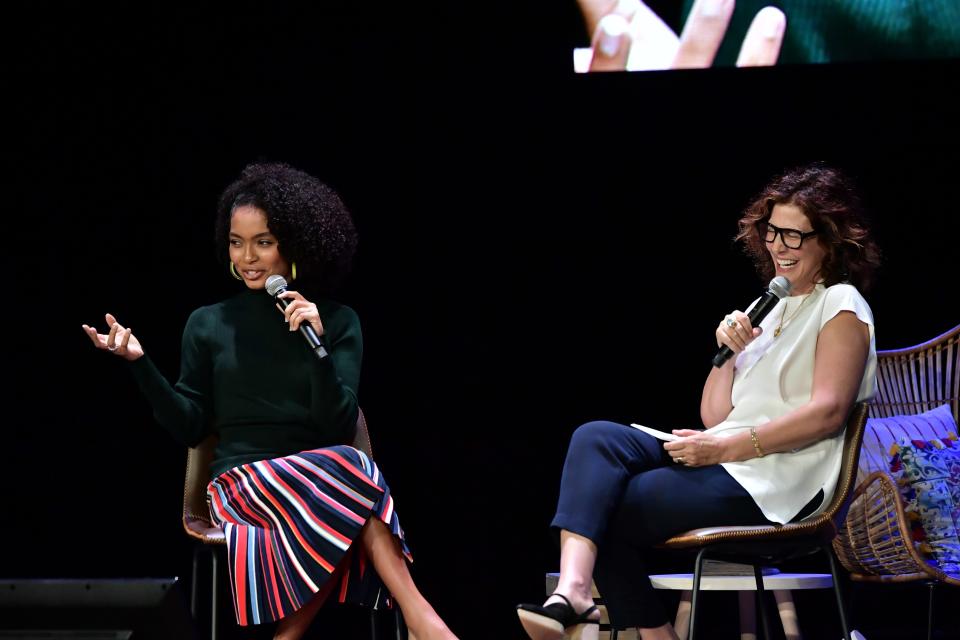
Hello Sunshine x Together Live - Boston
Nothing can replace human connection.
We live in a virtually connected world, and I think that’s one reason we have an epidemic of depression, anxiety, addiction, and disordered eating. All of these things, I think, are coming from this intimacy disconnect—the result of our virtually connected world. And I think that the cure for that is memoir, literary fiction, and storytelling in live events where we’re actually connecting. It’s not just hearing stories that resonate; it’s hearing them together. Because—outside of concerts and religious gatherings—we really don’t have opportunities to come together and to hear things that are heartfelt and authentic and true, and to actually be in community while we’re doing it. It’s very, very powerful and very healing. Together Live is the most magic, electric feeling I’ve ever had. Within minutes there are 2,000 heartbeats collectively beating as one.
Jennifer Rudolph Walsh is the cofounder of Together Live. Follow her on Instagram @jenniferrwalsh and follow her adventures @togetherliveevents. She’ll take the stage at all 10 stops this fall. Buy tickets here.
Originally Appeared on Glamour

